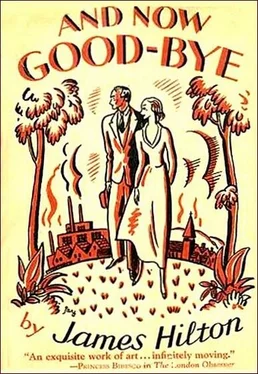This morning, as on so many other Monday mornings, she faced the oncoming week with a nonchalant glint of her prominent blue eyes. Breakfast was her particular scene of triumph, since Mrs. Freemantle took hers in bed, rarely appearing downstairs till the morning was well aired. Aunt Viney poured out tea with a steady hand, rebuked her niece for grumbling at the bacon (it was abominably cooked, she perceived, and privately made up her mind to have a real good row with that girl Ellen afterwards), and watched the progress of her brother-in-law’s breakfast with managerial solicitude. He seemed to her exactly as she had always known him at breakfast times—quiet, good- tempered, perhaps a little dreamy. Over the Quaker oats he opened his private letters, slitting the envelopes with the knife he would later use for the bacon. Over the bacon and eggs he talked a little, and after that, during the hurried moments before his daughter left for school, he glanced through the Daily News and mentioned a few odd things that were happening in the vast world outside Browdley. All this was perfectly according to custom.
From nine till eleven every morning, except Sunday, the Reverend Howat Freemantle was to be found in his ‘study’. During those two hours he answered letters, planned addresses and sermons, interviewed callers, and (if he had any spare time left over, which did not often happen) read books and the more serious type of periodicals. The study was a moderate-sized and rather gloomy room on the ground floor, overlooking a tiny soot-blackened front garden. A dozen years ago it had been furnished by Mrs. Freemantle, who had modelled it upon that of her father, himself a dissenting preacher; and Howat, who had no especial preferences in furnishing, had been content to leave it undisturbed from that primal exactitude. There were books, of course—shelves of them—his own training college textbooks, and stacks of theological works inherited from his father-in-law. There was a pedestal writing-desk, a swivel desk-chair, and a pair of ragged leather armchairs. Two black and white lithographs, one of “Dawn” and the other of “Sunset,” embellished alcoves on either side of the fireplace; a many-volumed series of the Expositor’s Bible (a gift from his first chapel) occupied a frontal position above the mantelpiece; and a bust of Beethoven (many visitors thought it was Luther) stood on the top of a bookcase containing the latest edition of the Encyclopedia Britannica , on which Howat was still paying monthly instalments. Apart from the Beethoven bust the room was impeccably what Mrs. Freemantle had originally planned it to be—the sanctum of a dissenting minister of the more ‘thoughtful’ type. Its composition as such was far too massive to be overlaid by any freakishness of personality, and all that Howat’s occupation ever inflicted on it was a merely surface litter that Aunt Viney easily and regularly cleared away.
Passing along Browdley High Street, and then up School Lane beyond the tram junction, the pedestrian reaches the Manse, after a short and rather depressing walk through a district given over to factories and slum property. There is a privet hedge along the street frontage, but it is low enough for a vague interior view of the study to be available to anyone who deliberately stares, and the Reverend Howat Freemantle must often have been seen at work there during the last dozen years, especially in winter when it is so dark as a rule that the lamps have to be lit.
On that Monday morning in November Howat lit the single gas-burner over his desk and gave his morning’s mail a second perusal. Besides a bunch of obvious-looking circulars there were three private letters, the first from a firm of engineers in Queen Victoria Street, London, confirming an arrangement by which he should call at their head office on the coming Friday to consult about a new heating apparatus. For his chapel members, after freezing and catching influenza for several successive winters, had at last decided to spend money on such an unspiritual but none the less necessary object; sixty pounds had already been subscribed, and there would be a bazaar or something to raise whatever extra might be required. To Howat had fallen the job of going to London to make final arrangements; of course he knew nothing at all about central heating, but his congregation had the usual optimistic belief that a parson must know something about everything.
The second letter was from a well-known missioner, offering to conduct a week’s revival in Browdley for twenty pounds plus his hotel and travelling expenses.
The third letter was from another London address—Wimpole Street. It fixed an appointment for the Reverend Howat Freemantle to see Doctor Blenkiron at 4. p.m. that same Friday. Howat turned it over rather awesomely in his hand; he had somehow nourished a slender hope that his little plan to fit in a visit to a London specialist might not have succeeded. However, there it was; Blenkiron could see him, even at such short notice, and no one at home, for the present at least, need be told anything about it. It was not only that he was anxious not to worry them—he was equally anxious that they should not worry him. He knew from frequent observation how magisterially Aunt Viney took command of other people’s illnesses; she was always so noisily optimistic about them, and at the same time so full of parallel anecdotes of persons who had either died lingering deaths, or had cured themselves by Christian Science or herbs, or some other specific in which Howat had no particular faith. She had, too, a robust common sense which would certainly have made her point out the absurdity of his paying hard-earned guineas to a London specialist before Ringwood’s verdict, which could be obtained for as many shillings, had been even asked for. Nor could Howat say precisely why he was unwilling to consult Ringwood first—except that Ringwood was a personal friend as well as a family doctor, and he shrank, somehow, from the human touch in such a business.
Ah, he told himself a shade irritably, throwing the letter into the fire, he was getting nervy—mustn’t think any more about it—wait till Friday, anyhow. Plenty of jobs to be done meanwhile. There was the address on Mozart he was due to deliver at the Young People’s Guild that night. Fortunately he knew a good deal about Mozart—no need to prepare anything especially. He might carry over his portable gramophone and a few records…He took the remainder of his correspondence to the fireside and pencilled a few memoranda on the back of a circular. Mozart…There was a Trio in E Major he might play over and also, of course, the overtures to “Figaro” and the “Magic Flute “. His eyes brightened a little at the prospect, and he stared across the room to observe, without irony, the view through the window of dilapidated slum cottages overtopped by a five-storeyed cotton-mill. Then, in a mood almost of abstraction, he began to open the circulars hitherto neglected. One was from a tailoring firm in London, advertising a sale of lounge suits at five guineas—to be had in either black or ‘clerical grey’. Well, perhaps on Friday, if he could find time, he would call and see about it—he certainly needed a suit badly enough…Another circular was from a firm of outside stockbrokers in Leicester, recommending shares in a brewery. A third was from an ecclesiastical supply stores in Paternoster Row, offering a job line of individual communion cups. A fourth came from Boston, Mass., and accosted him with a list of pertinent questions—“Are your sermons full of pep? Are you sure you are delivering the goods? Are you satisfied with your freewill offerings? Do you feel tired Sunday nights? Are you inclined to be low-spirited, diffident, disheartened?” And for a twenty-dollar course of ten lessons it could all, apparently, be put right.
Читать дальше











